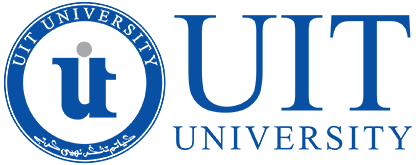BS Computer Science
BS Computer Science
Undergraduate
The undergraduate degree program in Computer Science includes theoretical and algorithmic foundations, data structures, computer network design, modeling data and information processing, and artificial intelligence. Computer Science has the foundations of mathematics and engineering. Also, it heavily uses hypothesis testing and experimentation during the conceptualization, design, measurement, and refinement of new algorithms, information structures, and computer architectures.

Program Mission
Overview
| Summary | |
| Duration of Program: | 4 Years |
| Number of Semesters: | 8 |
| Number of courses per semester: | 5 or 6 |
| Total Credit hours: | 140 |
| Total number of courses: | 45 + Final Year Project |
Eligibility
Students holding Higher Secondary School Certificate (HSC-II) in Pre-Engineering, Pre-Medical, Science General, Computer Science from any authorized board of intermediate education in Pakistan OR any equivalent foreign examination board with at least 50% or 550 out of 1100 marks are eligible to apply for admission.
Students awaiting the final result of HSC-II can also apply for conditional admission based on HSC-I results.
HSC-II (Pre-medical) or equivalent students are also eligible for admission. However, they must undertake deficiency courses in six-credit-hour Mathematics in the first year of regular studies.
Pre Entry Admission Test Eligibility Criteria:
Candidates are required to:
- pass the university’s pre-admission entry tests with at least 50% marks,
- pass the HEC Undergraduate Studies Admission Test (USAT) with at least 50% marks, or
- hold a score of at least 800 in SAT-I and secured at least 1500 in relevant subjects.
Courses
| Semester – I | |||||
| Course Code | Course Title | Th | Pr | Cr Hr | Pre-Req |
| CSC-101 | Introduction to Computing | 2 | 1 | 3 | |
| CSC-102 | Programming Fundamentals | 3 | 1 | 4 | |
| ASC-116 | Applied Physics | 3 | 0 | 3 | |
| HSC-121 | Communication Skills | 3 | 0 | 3 | |
| HSC-102/103 | Islamic Studies / Ethics | 2 | 0 | 2 | |
| Total | 15 | ||||
| Semester – II | |||||
| Course Code | Course Title | Th | Pr | Cr Hr | Pre-Req |
| CSC-103 | Object Oriented Programming | 3 | 1 | 3 | CSC-102 |
| CSC-108 | Discrete Structures | 3 | 0 | 3 | |
| CSC-110 | Digital Logic Design | 2 | 1 | 3 | |
| ASC-111 | Calculus & Analytical Geometry | 3 | 0 | 3 | |
| HSC-111 | English Composition & Comprehension | 3 | 0 | 3 | |
| HSC-105 | Pakistan Studies | 2 | 0 | 2 | |
| Total | 18 | ||||
| Semester – III | |||||
| Course Code | Course Title | Th | Pr | Cr Hr | Pre-Req |
| CSC-201 | Data Structures & Algorithms | 3 | 1 | 4 | CSC-102 |
| CSC-202 | Computer Organization & Assembly Language | 3 | 1 | 4 | CSC-110 |
| ASC-112 | Linear Algebra | 3 | 0 | 3 | ASC-111 |
| HSC-211 | Technical & Business Writing | 3 | 0 | 3 | HSC-111 |
| CSE-101 | Software Engineering Principles | 3 | 0 | 3 | |
| Total | 17 | ||||
| Semester – IV | |||||
| Course Code | Course Title | Th | Pr | Cr Hr | Pre-Req |
| CSC-203 | Operating Systems | 3 | 1 | 4 | |
| CSC-204 | Database Systems | 3 | 1 | 4 | |
| CSC-206 | Computer Architecture | 3 | 0 | 3 | CSC-202 |
| CIC-201 | Artificial Intelligence | 3 | 1 | 4 | CSC-201 |
| ASC-202 | Multivariate Calculus | 3 | 0 | 3 | |
| Total | 18 | ||||
| Semester – V | |||||
| Course Code | Course Title | Th | Pr | Cr Hr | Pre-Req |
| CNS-301 | Computer Networks | 3 | 1 | 4 | CSC-101 |
| CSC-205 | Theory of Automata | 3 | 0 | 3 | |
| ASC-201 | Probability & Statistics | 3 | 0 | 3 | |
| CSC-304 | Advanced Database Management Systems | 2 | 1 | 3 | CSC-204 |
| MSC-203 | Principles of Management | 3 | 0 | 3 | |
| HSC110 | Civics and Community Engagement | 2 | 0 | 2 | |
| Total | 18 | ||||
| Semester – VI | |||||
| Course Code | Course Title | Th | Pr | Cr Hr | Pre-Req |
| CSC-301 | Design & Analysis of Algorithms | 3 | 0 | 3 | CSC-201 |
| CSC-302 | Parallel & Distributed Computing | 3 | 0 | 3 | CSC-203 |
| CNS-302 | Information Security | 3 | 0 | 3 | |
| CSE-204 | Human Computer Interaction | 3 | 0 | 3 | |
| Domain Elective – I | 2 | 1 | 3 | ||
| Domain Elective – II | 2 | 1 | 3 | ||
| Total | 18 | ||||
| Semester – VII | |||||
| Course Code | Course Title | Th | Pr | Cr Hr | Pre-Req |
| CSC-303 | Compiler Construction | 3 | 0 | 3 | CSC-205 |
| MSC-301 | Technopreneurship | 3 | 0 | 3 | |
| Domain Elective – III | 2 | 1 | 3 | ||
| Domain Elective – IV | 2 | 1 | 3 | ||
| Elective Supporting – I | 3 | 0 | 3 | ||
| CSC-496 | Capstone Project – I | 0 | 3 | 3 | |
| Total | 18 | ||||
| Semester – VIII | |||||
| Course Code | Course Title | Th | Pr | Cr Hr | Pre-Req |
| HSC-311 | Computing Professional Practices | 3 | 0 | 3 | |
| Domain Elective – V | 3 | 0 | 3 | ||
| Domain Elective – VI | 3 | 0 | 3 | ||
| Domain Elective – VII | 3 | 0 | 3 | ||
| CSC-497 | Capstone Project – II | 0 | 3 | 3 | CSC-496 |
| Total | 15 | ||||
| Total | 137 | ||||
| Internship after 4th Semester | 0 | 3 | 3 | ||
| Program Total Courses | 45 | ||||
| Program Total Credit Hours | 140 | ||||
PEOs & PLOs
Program Educational Objectives
The graduates of the BS Computer Science program will have the knowledge, understanding and skills to:
- Pursue diverse range of careers, advanced degrees, or professional development in various computing disciplines.
- Apply analytical skills, computing principles, and modern technologies to design innovative and sustainable computing solutions to meet business objectives and societal challenges.
- Communicate effectively and work efficiently as an individual and in interdisciplinary teams with high professional and ethical values.
Student Outcomes:
The students of BS Computer Science program are expected to attain the following outcomes by the time of graduation:
- Completion of an accredited program of study designed to prepare graduates as computing professionals.
- Apply knowledge of computing fundamentals, knowledge of a computing specialization, and mathematics, science, and domain knowledge appropriate for the computing specialization to the abstraction and conceptualization of computing models from defined problems and requirements.
- Identify, formulate, research literature, and solve complex computing problems reaching substantiated conclusions using fundamental principles of mathematics, computing sciences, and relevant domain disciplines.
- Design and evaluate solutions for complex computing problems, and design and evaluate systems, components, or processes that meet specified needs with appropriate consideration for public health and safety, cultural, societal, and environmental considerations.
- Create, select, adapt and apply appropriate techniques, resources, and modern computing tools to complex computing activities, with an understanding of the limitations.
- Function effectively as an individual and as a member or leader in diverse teams and in multi- disciplinary settings.
- Communicate effectively with the computing community and with society at large about complex computing activities by being able to comprehend and write effective reports, design documentation, make effective presentations, and give and understand clear instructions.
- Understand and assess societal, health, safety, legal, and cultural issues within local and global contexts, and the consequential responsibilities relevant to professional computing practice.
- Understand and commit to professional ethics, responsibilities, and norms of professional computing practice.
- Recognize the need, and have the ability, to engage in independent learning for continual development as a computing professional.
| Students Outcomes (SOs) | Program Educational Objectives (PEOs) for BSCS Program | ||
| PEO 1 | PEO 2 | PEO 3 | |
| SO 1 |
|
||
| SO 2 |
|
|
|
| SO 3 |
|
||
| SO 4 |
|
||
| SO 5 |
|
||
| SO 6 |
|
||
| SO 7 |
|
||
| SO 8 |
|
|
|
| SO 9 |
|
||
| SO 10 |
|
||
Computing Science Programs
Meet Our Faculty Members
Explore Admission Opportunities
Get In Touch For Details
Find key details about our programs, requirements, and how to apply.

